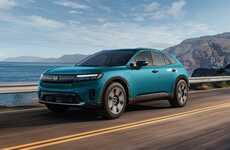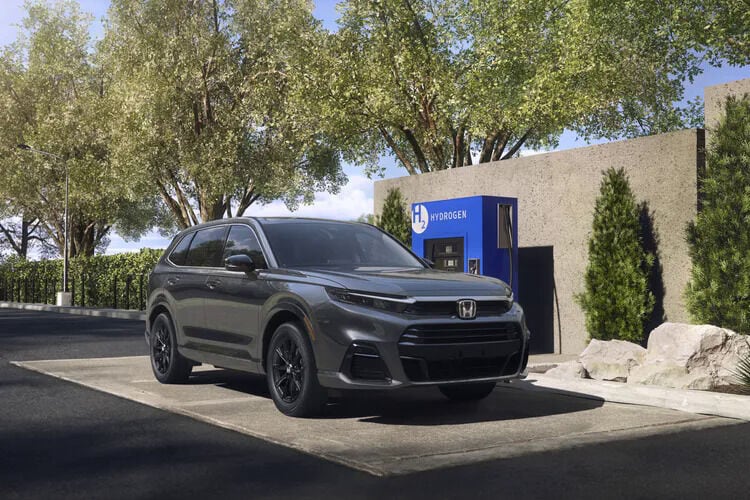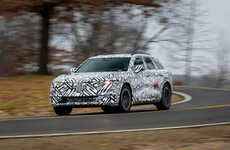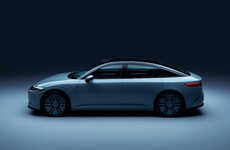
The 2025 Honda CR-V e:FCEV Offers 270-Miles of Range
Michael Hemsworth — February 27, 2024 — Autos
The 2025 Honda CR-V e:FCEV has been unveiled by the automotive brand as its latest compact crossover SUV that's engineered with performance and efficiency in mind.
The vehicle puts fuel cell modules co-developed with General Motors and produced via the Fuel Cell System Manufacturing (FCSM) joint venture. The vehicle is rated to pump out 92.2kW of power from the fuel cell modules with 174-horsepower and 229lb-ft of torque, while the battery capacity is rated at 17.7kWh. The compact SUV is thus ready to provide 270-miles of range, which includes an all-electric 29-mile driving range.
The 2025 Honda CR-V e:FCEV will come in one trim, the Touring, which includes a nine-inch infotainment system alongside a 10.2-inch gauge cluster in the cabin.
Image Credit: Honda
The vehicle puts fuel cell modules co-developed with General Motors and produced via the Fuel Cell System Manufacturing (FCSM) joint venture. The vehicle is rated to pump out 92.2kW of power from the fuel cell modules with 174-horsepower and 229lb-ft of torque, while the battery capacity is rated at 17.7kWh. The compact SUV is thus ready to provide 270-miles of range, which includes an all-electric 29-mile driving range.
The 2025 Honda CR-V e:FCEV will come in one trim, the Touring, which includes a nine-inch infotainment system alongside a 10.2-inch gauge cluster in the cabin.
Image Credit: Honda
Trend Themes
1. Hydrogen Fuel Cell Vehicles - The 2025 Honda CR-V e:FCEV showcases the advancement of hydrogen fuel cell technology in the automotive industry, offering a sustainable alternative to traditional fuel sources.
2. Collaborative Fuel Cell Modules - The partnership between Honda and General Motors highlights the trend of collaboration in developing innovative fuel cell modules for next-generation vehicles.
3. Extended Range Suvs - The 270-mile range of the CR-V e:FCEV sets a new standard in the SUV market, catering to consumers seeking longer driving distances with eco-friendly options.
Industry Implications
1. Automotive Manufacturing - Automotive manufacturers can explore opportunities to integrate hydrogen fuel cell technology into their vehicle lineup, potentially revolutionizing the future of sustainable transportation.
2. Energy Technology - The advancements in fuel cell technology present new possibilities for the energy sector to leverage hydrogen as a clean energy source for various applications beyond automotive use.
3. Information Technology - The incorporation of advanced infotainment systems in hydrogen fuel cell vehicles opens up avenues for IT companies to develop cutting-edge solutions to enhance the driving experience in eco-friendly cars.
5.1
Score
Popularity
Activity
Freshness
























